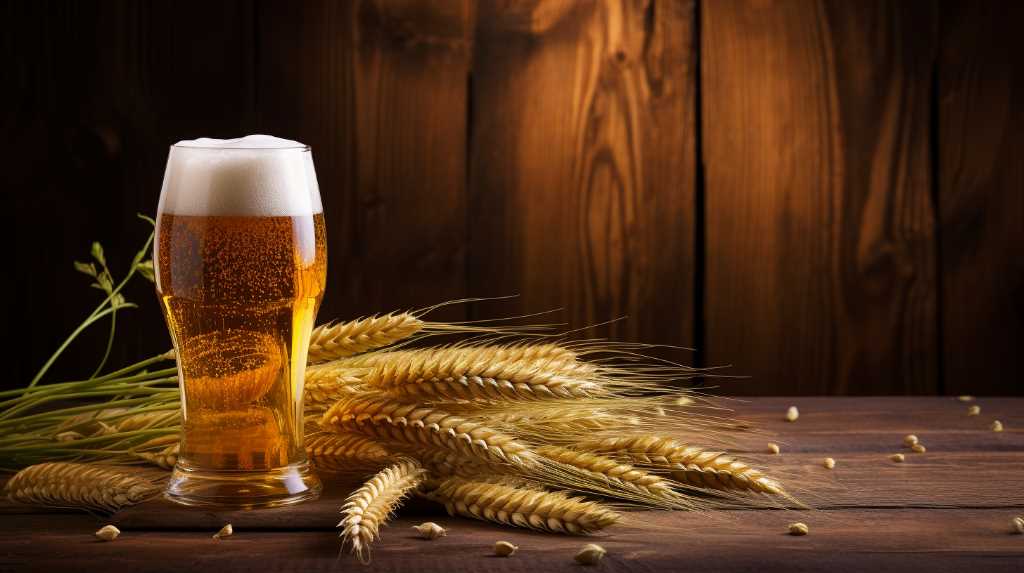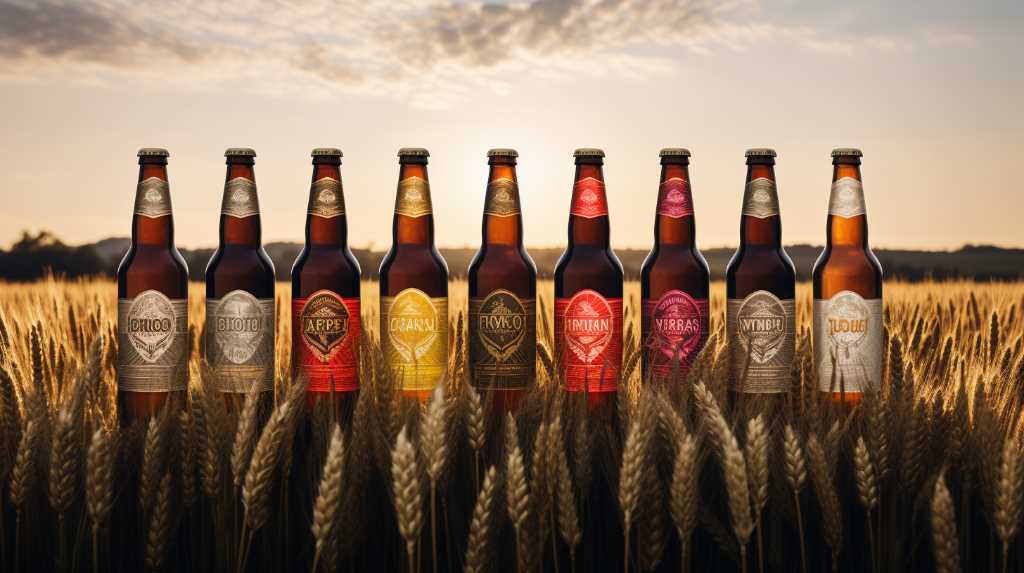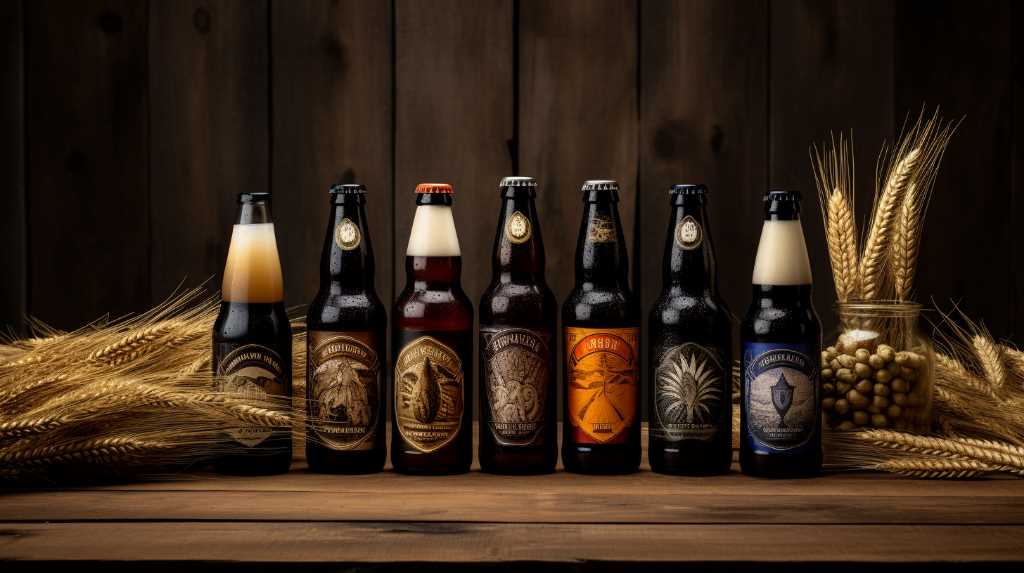
For those with gluten intolerance, finding a beer that doesn’t trigger symptoms is a careful process. The gluten content in beer varies widely based on the brand and the brewing method.
Traditional beers often use wheat and barley, which are full of gluten and therefore not suitable for someone with gluten sensitivity. However, the growing availability of gluten-free and reduced-gluten beers provides options for those who want to enjoy a beer without the worry.
These alternatives either use different ingredients that don’t contain gluten or undergo a process to minimize gluten levels. I want to help you understand which beers are low in gluten and how to choose them so you can enjoy a beer without discomfort.
Taking the time to learn about and select the right beer can make all the difference for those who love beer but need to avoid gluten.
For gluten-sensitive individuals, the hunt for the right beer is critical. Gluten-free and reduced-gluten beers are the solution for beer lovers who need to avoid traditional wheat and barley brews.
Key Takeaways
People who are sensitive to gluten need to be careful when picking out a beer. Most regular beers have a fair amount of gluten, but thankfully, some breweries are now making beers that those with gluten sensitivities can enjoy. The amount of gluten in beer varies; ales and lagers usually have more gluten compared to those marked as gluten-free.
It’s wise to learn how different beers are brewed and what goes into them. If you must steer clear of gluten, go for beers that are certified gluten-free. If you’re not as sensitive, you might be okay with beers that are marked as having less gluten. It’s about understanding what agrees with your system.
Whenever I feel like having a beer, I make sure it’s certified gluten-free. It may require a bit of looking around and trying different brands to find that perfect mix of taste and safe ingredients, but it’s certainly doable. The joy of sipping a beer without stressing over gluten is indeed a pleasure.
Keep in mind, always read the labels and be aware of how much gluten you can tolerate to enjoy your beer without compromising your health.
“Finding your perfect beer shouldn’t be a chore – it’s all about knowing your health needs and then finding a brew that fits the bill.”
Understanding Gluten Content

When picking out a beer, it’s good to know that the amount of gluten it contains can differ quite a bit. This is because gluten, which is a protein found in grains like wheat and barley that are commonly used in beer-making, varies depending on what grains and methods are used.
Most beers you’ll find have gluten amounts that range from 20 to 100 parts per million. To get these figures, scientists use precise testing methods like ELISA and PCR that can detect very tiny amounts of gluten.
For anyone with gluten sensitivities, choosing a beer that’s made without gluten is key. These beers might be made with different grains that don’t contain gluten, or they might use special brewing methods to get rid of the gluten.
I make it a habit to carefully check the labels to make sure I’m getting a beer that fits with what I can eat and drink.
Always check the label if you need to avoid gluten – that’s my mantra as a shopper with dietary restrictions.
Gluten Levels in Beer Types

Searching for the right beer can be tricky, especially when considering gluten content. It’s interesting to note that beers like ales might’ve just 3.12 parts per million (ppm) of gluten, which is relatively low. This makes them a better choice for those who’ve a sensitivity to gluten. On the other hand, stouts come with a much higher gluten content, sometimes reaching 361 ppm, which might raise concerns for those with gluten-related health issues.
Traditionally brewed beer generally contains gluten since ingredients like barley and wheat are commonly used. Beers that are made primarily with wheat can have particularly high gluten levels, which could be in the range of several thousand ppm. The good news is, recent scientific progress has led to the development of beers with reduced gluten content and even beers that are completely free of gluten. These are made with alternative grains or by using special methods to remove gluten from traditional grains. This innovation allows people who are intolerant to gluten to still enjoy a beer without the worry of adverse reactions. They can take part in the social tradition of sharing a beer with friends without having to compromise their health.
Gluten Levels in Different Beer Types:
- Ales: A go-to option for those with gluten sensitivities due to typically lower gluten levels.
- Stouts: A heartier option that often contains more gluten, which may be a concern for gluten-sensitive drinkers.
For those looking to keep their gluten intake in check, it’s worth checking out these specially crafted beers that ensure you don’t miss out on the joy of a chilled beer.
Beer Ingredients and Gluten

Let’s talk about the ingredients in beer and why they matter for those avoiding gluten.
Beer is traditionally made with grains such as wheat and barley, which are known to contain gluten. When these grains go through the beer-making process – being malted, mashed, and fermented – the gluten remains. That’s why regular beers usually have gluten levels that can range from 20 to 100 parts per million. For anyone with gluten intolerance or celiac disease, this is a key factor to be aware of.
Thankfully, there are now alternatives. Brewers have started using grains like sorghum, rice, and millet to make beers that don’t contain gluten. This means that people who are sensitive to gluten or have celiac disease can still enjoy a cold brew without worrying about the usual gluten grains.
Custom Quote: ‘A good brew doesn’t have to come with a side of gluten. With innovative grains, beer lovers can sip safely.’
The Gluten-Free Brewing Process

Traditional beer brewing often uses grains that contain gluten, such as barley and wheat. However, those with gluten intolerances or celiac disease can’t enjoy these beers without health consequences. Thankfully, modern brewers have developed ways to make beer without gluten, allowing everyone to enjoy a cold brew without worry.
These beers are made using gluten-free grains, giving people with dietary restrictions the chance to enjoy a beer that tastes great and is safe for them to drink. Some of these alternative grains include:
- Sorghum
- Rice
- Corn
- Buckwheat
- Millet
The process of making gluten-free beer is careful and precise, ensuring that the end product is safe for gluten-sensitive drinkers. Brewers focus on choosing the right grains to create the desired flavors. They also adjust the mashing and fermentation steps to maintain the beer’s gluten-free status.
This attention to detail in brewing means that gluten-free beer can be just as flavorful as traditional beers. It’s a fantastic option for those who’ve had to avoid beer in the past due to gluten intolerance.
In the words of a master brewer, ‘Creating a great-tasting gluten-free beer requires a blend of science and art, and the outcome is a celebration of flavor that everyone can enjoy.’
Gluten Intolerance and Beer

If you’re sensitive to gluten, paying close attention to the beers you drink is a smart move because even a little gluten can cause serious health problems. People need to know that beer often contains gluten, usually ranging from 20 to 100 parts per million (ppm). For someone with celiac disease, ingesting gluten can lead to unpleasant effects like stomach pain, tiredness, and damage to the small intestine over time. That’s why it’s so important to know how much gluten is in your beer.
When you look at the gluten content in different types of beer, ales are on the lower end with about 3.12 ppm, but lagers have significantly more at around 63 ppm. Stouts are on the high end with as much as 361 ppm. This difference really shows why choosing gluten-free beers, which are made with other grains, is a good idea for those wanting to avoid the risks associated with celiac disease and keep up a gluten-free diet.
Remember, if you have gluten intolerance or celiac disease, always check the label and opt for beers that are certified gluten-free to stay on the safe side.
Selecting Gluten-Free Beers

Choosing the right gluten-free beer requires attention to detail to make sure it’s safe for those with celiac disease or a gluten sensitivity. These beers must have less than 20 parts per million (ppm) of gluten to be considered safe for consumption.
Here’s how I pick out the best ones:
- I look for beers made from grains that don’t contain gluten:
- Sorghum
- Rice
- Millet
- I check for signs of third-party verification:
- Official gluten-free certifications
- Lab results that confirm the beer’s gluten levels
Understanding these details is key to finding a beer that won’t pose a health risk for people avoiding gluten. I make sure the gluten-free beers I choose follow strict guidelines, so you can relax and enjoy a cold one safely.
Remember to always check labels and certifications to protect your health and enjoy responsibly!
Gluten-Reduced Vs Gluten-Free

There’s a common mix-up between beers that have less gluten and those that are entirely gluten-free. They’re made for different health needs and use different brewing methods. If you have celiac disease or a gluten intolerance, understanding this distinction is key.
Regular beer is typically brewed with grains that contain gluten, like wheat and barley, leading to a substantial gluten presence. On the other hand, gluten-free beers are made with alternatives like rice or sorghum and must have less than 20 parts per million of gluten to be considered safe for those with severe gluten reactions.
If your body reacts negatively to gluten, choosing beers marked as gluten-free is the safest bet. Beers labeled as having less gluten might still have enough to cause a reaction. Paying attention to the brewing process and the amount of gluten in the beer is a smart move for anyone concerned about gluten intake.
Always check the label for ‘gluten-free’ to ensure your beer is safe to drink if you’re sensitive to gluten. The difference might seem small, but it’s significant for those who need to avoid gluten for their health.
Frequently Asked Questions
Is Beer Very High in Gluten?
The amount of gluten in beer really depends on the type you choose. Beers that are made from wheat tend to have more gluten, which can be a problem for those with gluten intolerance or celiac disease. On the other hand, there are beers specifically crafted to be gluten-free, offering a safer alternative for those who need to avoid gluten.
If you’re sensitive to gluten or have celiac disease, it’s wise to be careful with traditional beers. Thankfully, the market has responded with a variety of gluten-free options. Some popular gluten-free beer brands include Glutenberg, Redbridge, and Omission, which have developed brewing methods to either remove gluten or use gluten-free ingredients from the start.
Remember: Always check the labels and consult with manufacturers if you’re unsure about the gluten content in your beer. With the growing awareness of gluten-related health issues, many companies provide detailed information about their brewing process and ingredients, ensuring you can enjoy a cold one without the worry.
How Much Gluten Is in a 12 Ounce Beer?
After looking into the gluten content of beer, it’s clear that a 12-ounce serving has a wide range of gluten levels, typically from 3,120 to 25,920 parts per million (ppm). The type of beer plays a significant role in this variation. Wheat beers often have more gluten, while ales may have less.
For those with gluten sensitivities or celiac disease, understanding the gluten content in beer is vital. While the majority of beers contain gluten, there are gluten-free options available that are brewed to cater to those needs. Always check the label or consult with the brewery to ensure the beer meets your dietary requirements.
Remember to drink responsibly and consider the gluten content if it’s a concern for your health or dietary needs.
How Much Gluten Is in Beer Vs Bread?
Let’s take a look at the gluten levels in beer compared to bread. On average, beer has less gluten, with amounts ranging from 20 to 100 parts per million (ppm). Bread, on the other hand, often contains much more gluten, typically between 300 and 600 ppm. If you’re avoiding gluten, there are gluten-free versions available for both beer and bread. However, most regular beers do have some gluten in them.
For those who need to avoid gluten due to health reasons, like people with celiac disease or gluten sensitivity, this information is crucial. It’s easy to overlook the gluten content in beverages, but for those affected, knowing these numbers can make a big difference in managing their health.
Gluten-free alternatives have come a long way, and the market now offers a wide variety of beers and bread that are safe for gluten-sensitive individuals to enjoy without worry.
“A mindful choice in what we eat and drink can lead to a happier, healthier life, especially for those with dietary restrictions.”
Can You Drink Beer if You Are Gluten Intolerant?
If you’re gluten intolerant but still enjoy a cold one, you’re in luck. There are beers out there made just for you. These beers are crafted using grains that don’t contain gluten or they go through a process to remove gluten. Just make sure to read the labels carefully to ensure they fit with your dietary needs.
“In a world where dietary needs are as diverse as the people who have them, it’s refreshing to see that beer lovers with gluten sensitivity have options too.”
Conclusion
For those of us with gluten sensitivity, finding the right beer can be a bit tricky. Traditional beers often contain too much gluten, but thankfully, innovative brewers have been crafting new options that cater to our needs. The gluten content can differ widely depending on the type of beer, with ales and lagers typically having more gluten than those labeled as gluten-free.
It’s important to understand how different beers are made and what ingredients they contain. For those who need to avoid gluten completely, seeking out beers that are officially certified as gluten-free is the safest bet. Some people with a lower sensitivity might be okay with beers that are labeled as gluten-reduced, but it’s all about finding what works for your body.
When I want to enjoy a beer without worrying about the gluten content, I always check for that certified gluten-free label. It takes a bit of research and maybe some taste testing to find the right blend of good flavor and health-conscious brewing, but it’s definitely possible. Enjoying a cold one without the worry of gluten-related issues? Now, that’s something to cheers to.
Remember, the key is to read labels and know your own tolerance levels to ensure you can enjoy a beer without any negative effects on your health.





